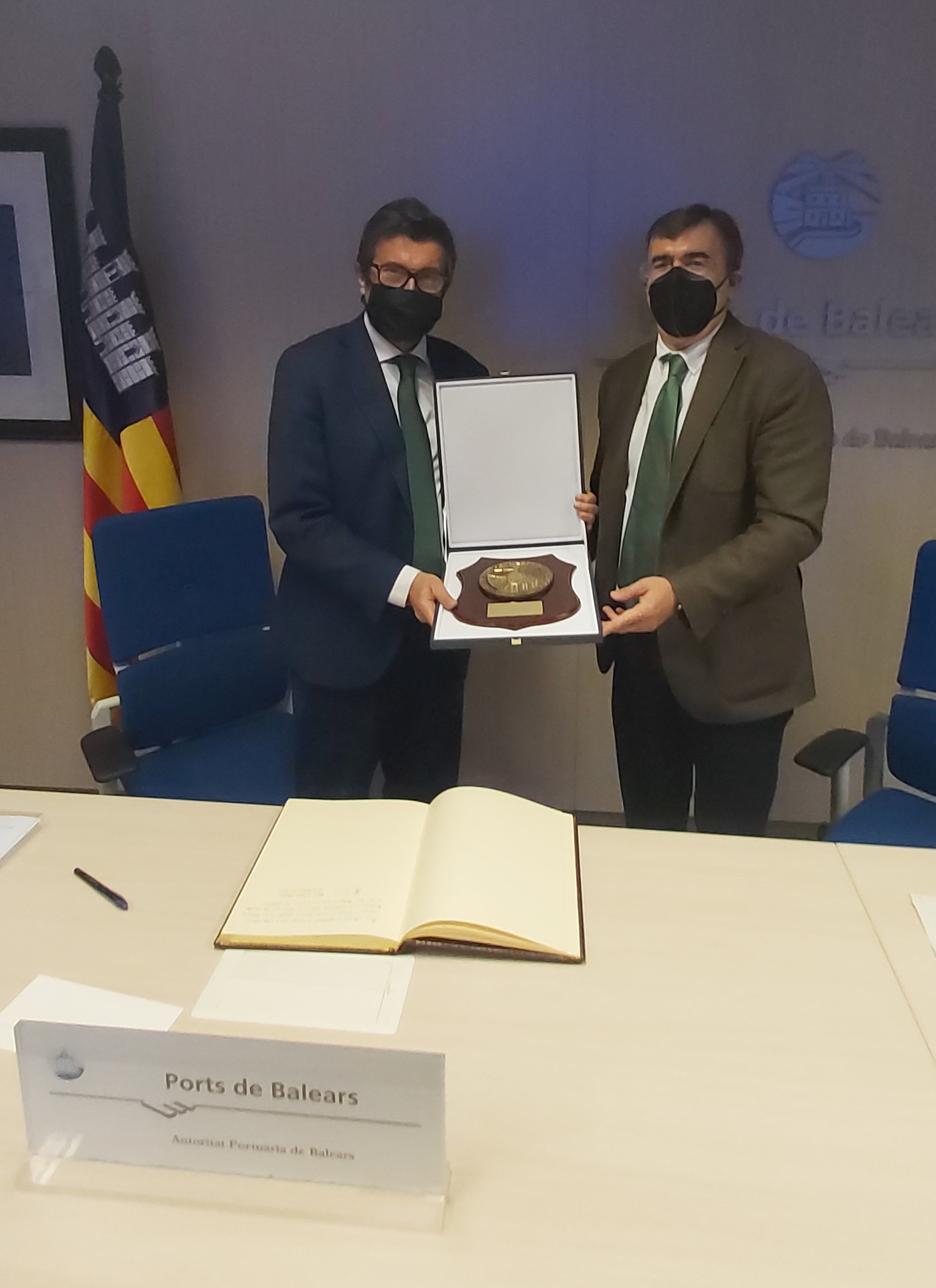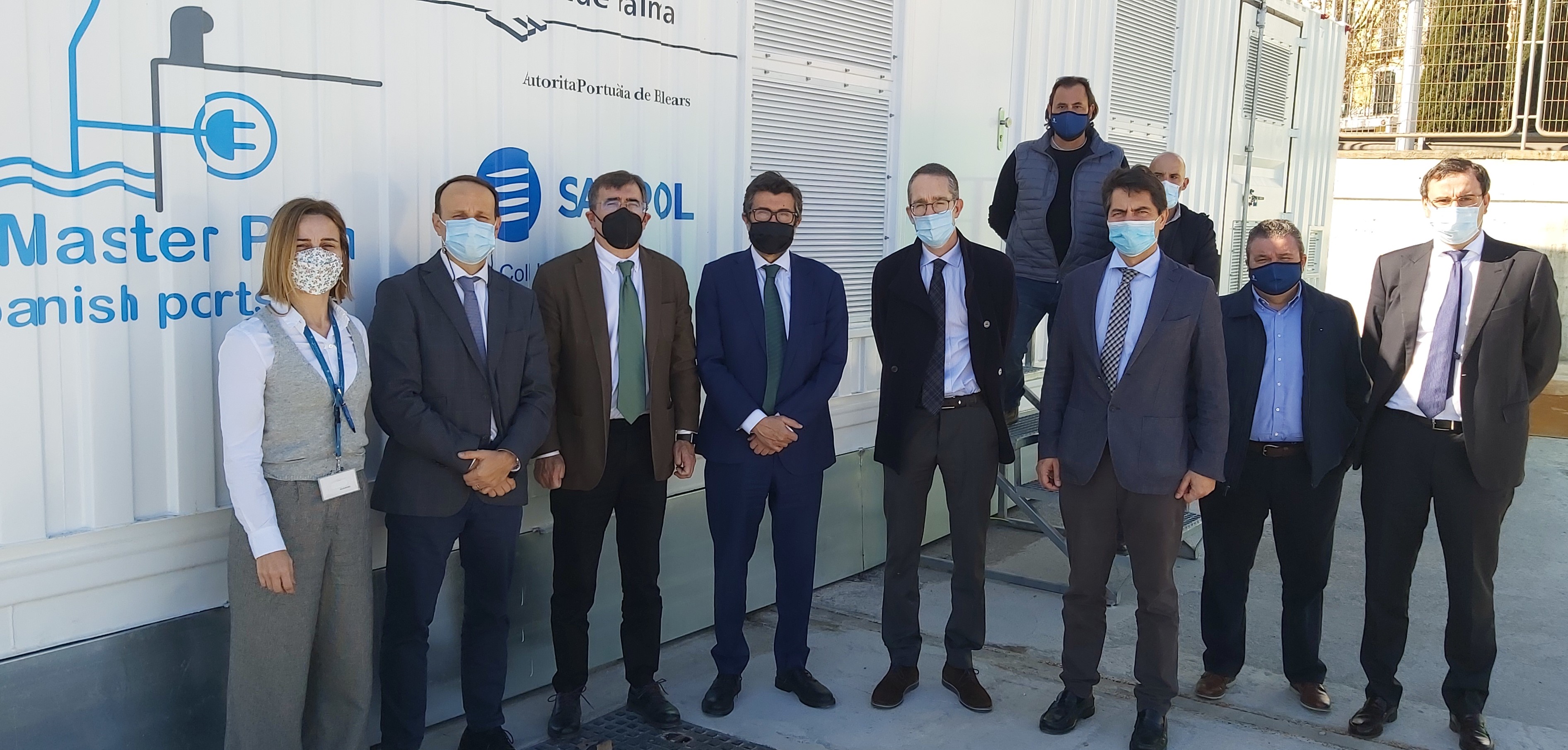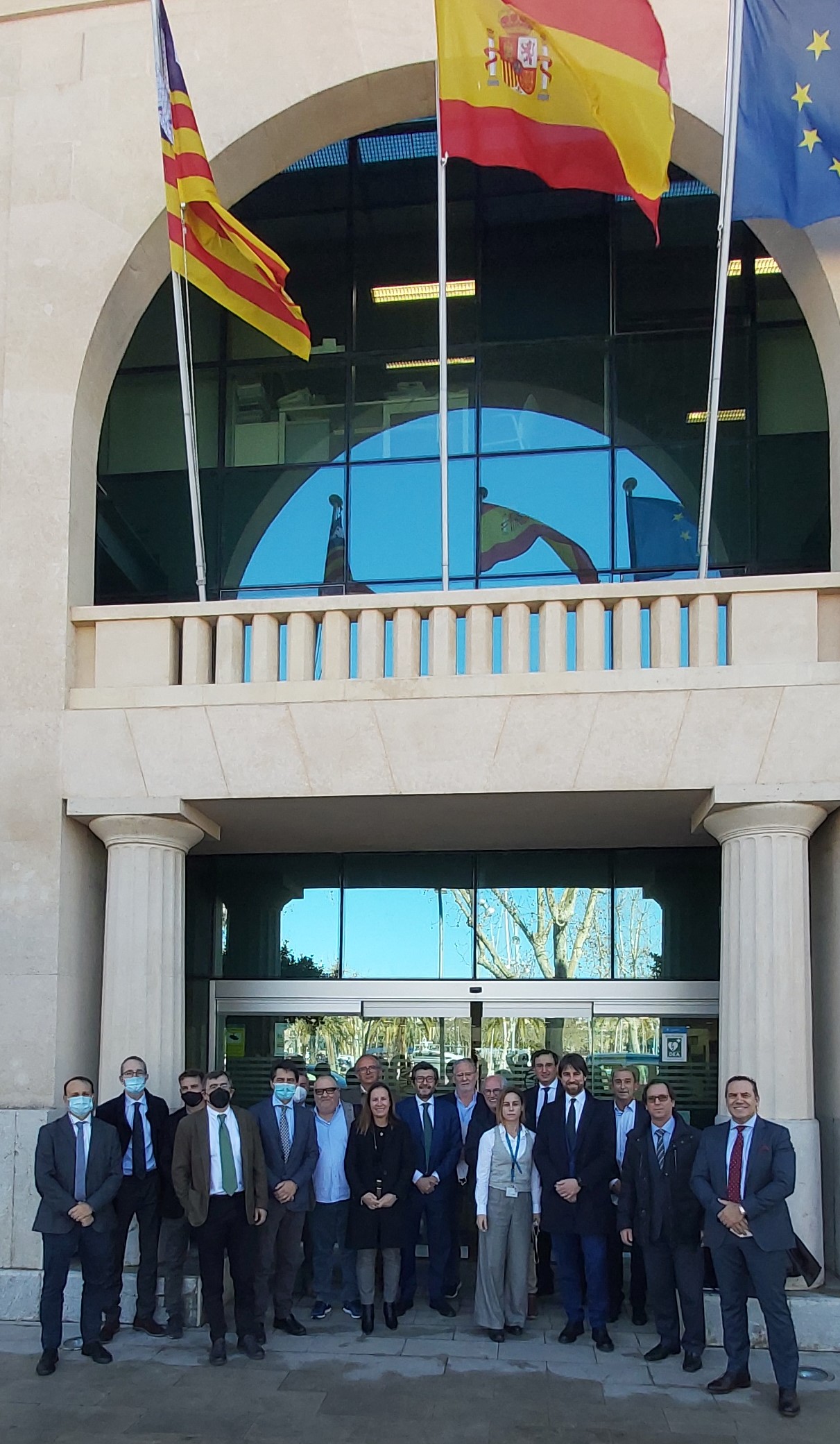
The president of Puertos del Estado visits the port of Palma
The President of Puertos del Estado is interested in the system for supplying electricity to ships which is already operating in Palma
Palma
07/02/2022
The president of Puertos del Estado, Álvaro Rodríguez Dapena, made an institutional visit to the Port Authority of the Balearic Islands (APB) this morning, accompanied by its president, Francesc Antich and his management team, as part of the round of contacts he is making with the managers of the ports of general interest of the State Port System.
After signing the APB’s book of honour, Rodríguez Dapena received a commemorative mosaic from Antich to mark the visit, which coincides with the 150th anniversary of the APB.
They then toured the port of Palma, visiting the new medium and low voltage electricity supply infrastructure that enables berthed ferries to reduce gas emissions and noise generated by their engines during stopovers and disembarkation and embarkation operations. A technological advance that the president of Puertos del Estado has described as innovative and which the president of the APB considers part of “the commitment assumed by the ports in their fight against climate change”.
After meeting with the APB management committee, with whom he learned first-hand about the projects and challenges affecting the ports of Palma, Alcudia, Maó, Eivissa and La Savina, he held a meeting with some of the main port operators on the islands.
Environment, sustainability and island uniqueness
Among the topics discussed was the identification of the APB’s strategic plan with the guidelines and general terms of the Strategic Framework of the Spanish port system, both of which are expected to be approved in 2022. Among the central themes of the presentation were the application of sustainable management and ecological transition policies, as well as the transformation of port terminals to be powered exclusively by renewable energies.
The need to adapt structures and human resources to the unique management of five ports on four islands, the organisation of regular passenger and goods transport lines, the opportunity to promote more sustainable cruise tourism, the situation of the nautical sector and the boat repair and maintenance industry, as well as the future developments of the port of Palma, were other aspects dealt with by the technicians of the APB and the port community of the Balearic Islands.










